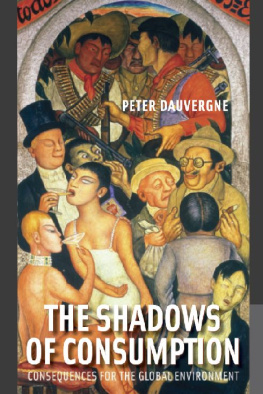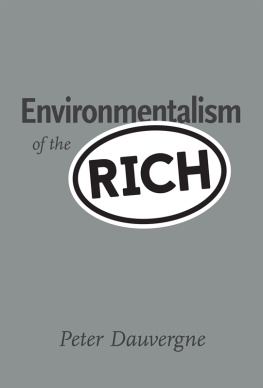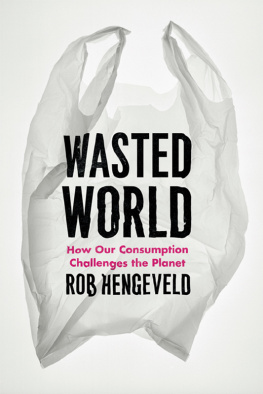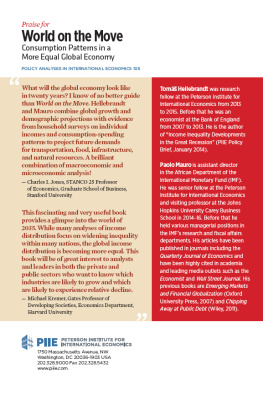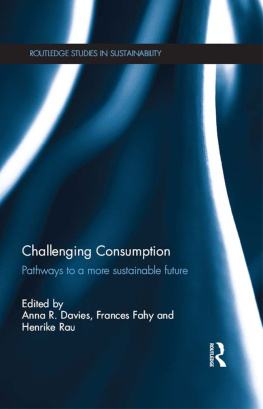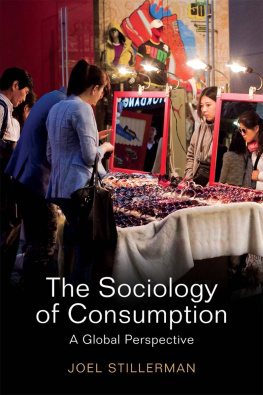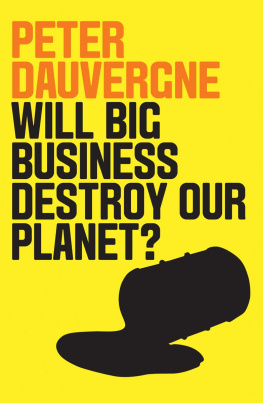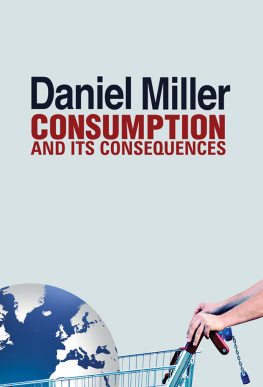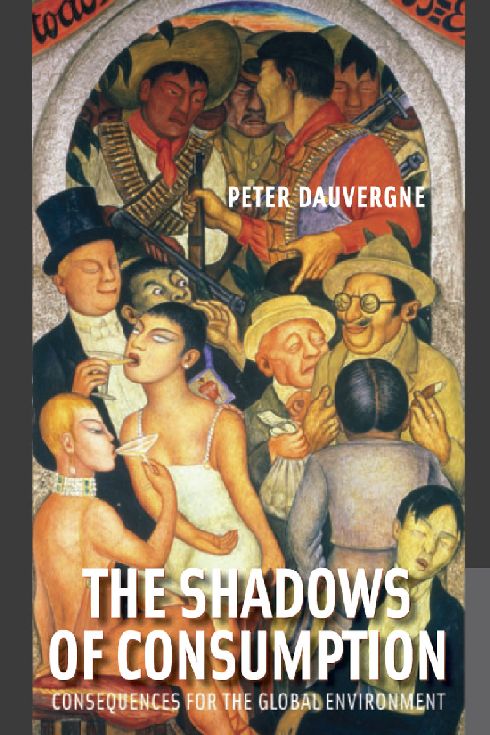Dauvergne - The shadows of consumption : consequences for the global environment
Here you can read online Dauvergne - The shadows of consumption : consequences for the global environment full text of the book (entire story) in english for free. Download pdf and epub, get meaning, cover and reviews about this ebook. City: Cambridge, Mass, year: 2008, publisher: The MIT Press, genre: Romance novel. Description of the work, (preface) as well as reviews are available. Best literature library LitArk.com created for fans of good reading and offers a wide selection of genres:
Romance novel
Science fiction
Adventure
Detective
Science
History
Home and family
Prose
Art
Politics
Computer
Non-fiction
Religion
Business
Children
Humor
Choose a favorite category and find really read worthwhile books. Enjoy immersion in the world of imagination, feel the emotions of the characters or learn something new for yourself, make an fascinating discovery.
- Book:The shadows of consumption : consequences for the global environment
- Author:
- Publisher:The MIT Press
- Genre:
- Year:2008
- City:Cambridge, Mass
- Rating:3 / 5
- Favourites:Add to favourites
- Your mark:
The shadows of consumption : consequences for the global environment: summary, description and annotation
We offer to read an annotation, description, summary or preface (depends on what the author of the book "The shadows of consumption : consequences for the global environment" wrote himself). If you haven't found the necessary information about the book — write in the comments, we will try to find it.
The Shadows of Consumption gives a hard-hitting diagnosis: many of the earths ecosystems and billions of its people are at risk from the consequences of rising consumption. Products ranging from cars to hamburgers offer conveniences and pleasures; but, as Peter Dauvergne makes clear, global political and economic processes displace the real costs of consumer goods into distant ecosystems, communities, and timelines, tipping into crisis people and places without the power to resist.
In The Shadows of Consumption, Peter Dauvergne maps the costs of consumption that remain hidden in the shadows cast by globalized corporations, trade, and finance. He traces the environmental consequences of five commodities: automobiles, gasoline, refrigerators, beef, and harp seals. In these fascinating histories we learn, for example, that American officials ignored warnings about the dangers of lead in gasoline in the 1920s; why China is now a leading producer of CFC-free refrigerators; and how activists were able to stop Canadas commercial seal hunt in the 1980s (but are unable to do so now).
Dauvergnes innovative analysis allows us to see why so many efforts to manage the global environment are failing even as environmentalism is slowly strengthening. He proposes a guiding principle of balanced consumption for both consumers and corporations. We know that we can make things better by driving a fuel-efficient car, eating locally grown food, and buying energy-efficient appliances; but these improvements are incremental, local, and insufficient. More crucial than our individual efforts to reuse and recycle will be reforms in the global political economy to reduce the inequalities of consumption and correct the imbalance between growing economies and environmental sustainability
Dauvergne: author's other books
Who wrote The shadows of consumption : consequences for the global environment? Find out the surname, the name of the author of the book and a list of all author's works by series.

